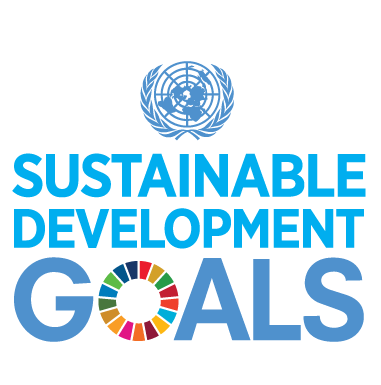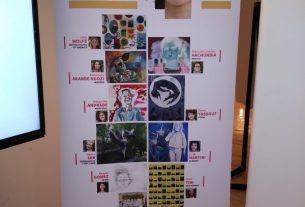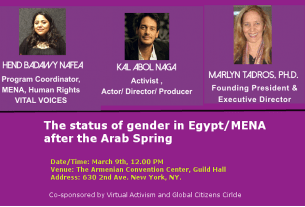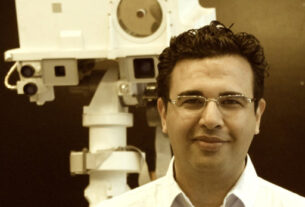The 55th Session of the Commission for Social Development (CSocD55), took place between 1-10 February 2017. The session’s theme was “Strategies for the eradication of poverty to achieve sustainable development for all”. Eradication of poverty an integral objective of all policies. But what will it take?
Assistant Sec Gen António Guterres stated that inequality continues to be a problem. Many improvements have happened but we had set the bar higher with specific goals. In addition, regional conflicts are setting us backwards in achieving those goals. There is a worldwide jobless issue. Cities are struggling. How, then, do we get sustainable development for all?
The only way forward is by monitoring, development, and strategizing for poverty eradication.
![]()
There needs to be a set of tools and policies that must aim for peace, sustainable development and human rights. Social development is a sure way to ensure sustainable and enduing peace, support UN together to fight xenophobia and discrimination, and achieve gender equality.
This session was about a review of progress made to eradicate poverty and highlight the challenges that many countries are facing, concluding with strategies for the future.
Guterres focused on the importance of the political will of institutions and of governments through mutually reinforcing environmental and social coherence. Mainstreaming, he warned, could lead to a status quo. Countries should ensure that they leave no one behind and have to give priority for those left behind especially women, youth, disabilities, indigenous people, and the like.
However, there are remaining challenges such as a high level of poverty and financial constraints, etc. The Secretary General’s report urges African countries to continue to invest in agriculture, investment in health and education, continue to develop inclusive strategies and to continue to promote and develop the 2030 agenda.
Programs of action:
- Disability: Mainstreaming disability, promoting the rights of the disabled and strengthening their inclusion in development frameworks in social and economic developments. The report of the rapporteur concluded with encouraging mechanisms to be inclusive and mainstreaming disability.
- Youth: Programs involving youth: youth policies and progress. Think about development and how to strengthen existing resources and increase qualitative and quantitative data, encouraging women in particular and establish mechanisms of integrating them.
- Aging: Programs involving aging: 3rd review of Madrid plan of action. 2018 the rapporteur will conduct a global segment of the Madrid plan. Substantive list of options to more effectively highlight aging issues. Having a global world map on strategies on aging in next 5 yrs.
- Emerging issues: focusing on promoting policies for sustainable development and poverty eradication. The Commission could play a leading role in this and create a comprehensive vision of social development. In doing so, the Commission can explore and provide guidance on how to implement it.
Daniel Purell, chair of NGO committee, asked why poverty was the greatest challenge in the world today? He stated that it was social fragmentation even though we live in an interconnected world. Poverty is incompatible with our understanding of what it is to be human. Progress has allowed us to multiply multifold to allow us to eradicate it. Ethics and policies have also developed but not kept up with progress.
The Civil Society Declaration [pdf] provides tools to people to address the true causes of poverty. Absent the human element, nothing will be sustainable. Civil society can bring heart and humanity to the policies we work hard to create. We have to integrate the human and the technical with efficiency and compassion. Purell urged attendees to think about independence and inter-dependence, universality and particularity. Respecting uniqueness and all nations who are ultimately dependent on each other.
Development efforts have been focused on ‘independence’ and have what they need, but we are interdependent – we all depend on each other and have much to learn from each other. Interdependence is a source of our greatest strength. We have to acknowledge the interdependence and the nature and aims of poverty eradication.
The youth representative on the opening panel stated that ECOSOC’s youth forum includes youth strategies in all plans and strategies. They stressed the importance of the democratization of hardware and software and facilitation of tech issues. They also discussed topics from youth employment, economic equality and the concern of climate and ocean in Asian countries, to the rise in the need for peace by the Arab working group. He stated that youth must work together in partnership and strengthen mechanisms and create a world of tolerance and respect for the planet.
Country interventions:
The Equador, on behalf of group of G77 and China: In 2015 the international community agreed to a set of milestones. One year later we adopted a new urban agenda and ushered in a phase towards sustainable development. Extreme poverty is a sine qua non for our agendas. We have an agenda that will ensure no one is left behind. We must send a clear message that they are inextricably linked to women, youth, disabled etc. acknowledging their importance. We reaffirm commitment for eradication of poverty. We are deeply concerned re inter-related goals and lack of social advancement in general, conflicts, volatility of financial markets, humanitarian crises, climate change, etc. all of which are creating obstacles towards progress. Eradicating poverty affects everyone and everyone is affected by these phenomena. New approaches and strategies are needed.
Vietnam: strategies should not be one size fits all but should be tailored to each country’s needs: There is a need to put those as priorities in plan of action: safety nets, development of infrastructure, monitoring and evaluation.
Costa Rica: Economic Social and Cultural Rights. Dignity of human rights has to be at the center of sustainable development. Transformative agenda is leaving no one behind. The 2030 goals and targets focus on health, inequality, education, etc. Fostering social inclusion. Empowerment, dev and human dignity. Respecting promoting and protecting human rights. It all requires a collective commitment to human rights, in particular economic, social and cultural rights. People living on the streets and refugees. Poverty levels decreased in Costa Rica regardless of the way it is measured. We are working towards a society which is more inclusive and more human rights oriented to implement.
Minister of Family and youth of Austria: war, famine and natural disasters can have impact on other countries. No country can deal with it alone. This makes this agenda so important – our goal to make the world a better place. Deeply committed to making the world a better place. There are several aspects that need to be considered for dev policies: 1- inclusive growth to guarantee no one is left behind. 2- A family environment makes a huge difference. 3- Combating gender related inequality. 4- Youth unemployment is still high. 5- Digitalizing everything. Digital competence is important and goes hand in hand with life-long learning. Equip youth and students with latest technology. Economic growth is by investing in people. Marginalized groups older persons, women, native and migrants and refugees are at higher risk of facing poverty. Austria has extensive social policies. Multi-stakeholder is important. Involving stake holders of all levels. Austria introduced several mechanisms to increase youth involvement. We have to start with children and ends with children. Healthy children are foundation of society.
Brazil: Economic growth based on poverty is impossible. Brazil has made consistent efforts to advance social inclusion and reduction of inequalities through a rights-based approach. Brazil is officially out of the hunger map, as a result of efforts of all people. Poverty is multidimensional and policies to address it must be sustainable. Brazil’s commitment is to sustainability. They have a social assistant social system built on a democratic basis with broad civil society participation. They have 20 social programs: housing, child labor, access to electricity and sanitation. Welfare benefits guarantee minimum salaries for people who do not have the means to support themselves. Income transfer strategies are important but not enough. But we must eliminate intergenerational poverty and further the improvement of labor market and independence of individual. Brazil created the ‘Happy child’ program to strengthen families’ access to health, education, culture and human rights.
The Russian Federation focused on the practical implementation of economic development. In the new reality we face, the Commission can work well including disability, aging, and youth and consolidating the role of family. Income is a motivation for people to work. Documents of the Commission also emphasize that. Russia eradicated poverty in 2013 but the groups at highest risk of poverty are the elderly, the people outside the ‘economic activity’, and people with disabilities. Russia made a supplement to the pension to make it sustainable for people. Russia cut unemployment for youth – professional training, internships, retraining, facilitating jobs for people with disabilities. People are also working unofficially and some are working in the shadow economy which has also a negative impact on the government. But Russia also increased minimum age.
Portugal: poverty is multidimensional and may acquire different forms in different countries but their consequences are the same: It deprives children from getting to their full potential. Portugal created a new program for persons with disabilities and others that include long term help for the unemployed especially those over 60. Working does not mean just adequate protection but a sustainable system of income guarantee. Portugal is hosting the meeting on aging in September in Lisbon.
Conclusion:
Pres of General Assembly: The Commission aims to promote people-centered and inclusive strategies and to lay groundwork for the adoption of the sustainable development agenda. Its ultimate goal is ending extreme poverty by 2030 and believe it is within reach. It is a moral outrage that it still exists. Since 1990s poverty has been reduced but we need to put an end to the scourge of poverty. There are three strategies for implementation:
- inclusive and sustained economic growth through investment in our people. Invest heaving in education – equitable and quality education.
- we must sustain peace. People in countries affected by conflict are mostly impacted. Sustaining peace and sustaining development. We must invest in conflict-prevention strategies.
- Finally, we need to secure sustainable financing for implementing the strategies of SDGs. In pursuing these approaches working together is important bringing together multi-stakeholders.



